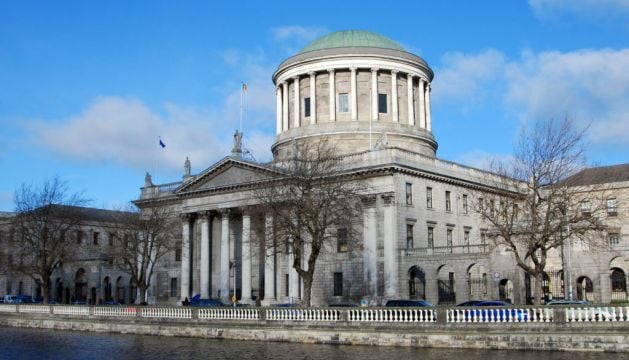The High Court has refused to overturn a jury’s verdict that a Waterford couple’s newborn baby died of natural causes.
Ms Justice Marguerite Bolger said she was satisfied the inquest into the death of Tommy Spencer was conducted appropriately by the Cork City Coroner.
Coroner Philip Comyn allowed the jury sufficient time for their determination and gave adequate directions on the evidence, the judge found.
She dismissed Natasha Cummins and Aiden Spencer’s judicial review application, which sought to quash the verdict delivered on September 10th, 2020.
The judge acknowledged the proceedings arose out of very sad circumstances for the couple. However, she said the applicants “fall well short of the high bar” faced by one seeking an order quashing a verdict on grounds of irrationality.
The judge said the jury favoured the evidence of the medical witnesses over the propositions advanced by the couple, so there was an evidential basis for the verdict of death by natural causes.
'Irrational'
Tommy was born at University Hospital Waterford on July 14th, 2018, and died four days later at Cork University Maternity Hospital.
In their High Court proceedings, Ms Cummins and Mr Spencer claimed the verdict of natural causes was “irrational” and ignores alleged evidence that Ms Cummins was experiencing excessive contractions during her labour on July 13th, 2018.
They claimed there was a failure to monitor alleged hyperstimulation and that contraction augmentation drug oxytocin should have been discontinued earlier.
They alleged Mr Comyn did not adequately instruct the jury on certain issues, particularly on the use of the oxytocin at University Hospital Waterford.
Among other claims, all of which were denied, was that the verdict was likely affected by time pressures.
Ms Justice Bolger said the propositions of inappropriate administration of oxytocin and evidence of hyperstimulation had been heavily contested at the inquest by the medical witnesses who had attended to Ms Cummins.
A midwife told the inquest that Ms Cummins’s signs as being normal and reassuring heart rate monitoring results, the judge said.
Medical witnesses also strongly disputed claims there was inappropriate administration of oxytocin, and this was reflected in the coroner’s version of the evidence.
The applicants chose not to call any medical witnesses at the High Court hearing, instead relying on heart rate monitoring data from around the time of the birth.
They accepted the coroner had left open to the jury the option of returning an open verdict, but upon his recollection, there was no misadventure option.
Ms Justice Bolger was satisfied no evidence as to the alleged inappropriate administration of oxytocin and hyperstimulation was put before the jury.
She did not accept that the heart rate monitoring data equated to medical evidence in circumstances where there was clear medical evidence showing the drug was appropriately administered.
The judge refused the application.







